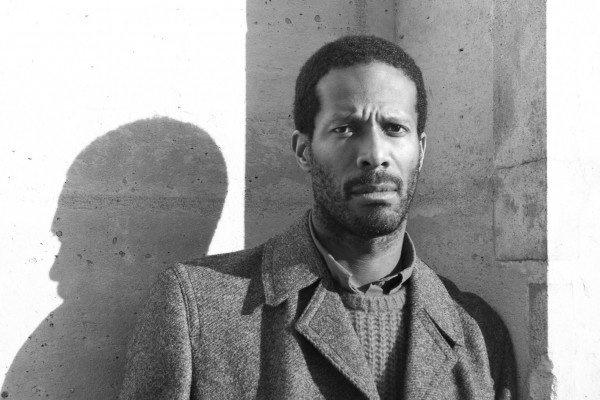Jimmy Robert

Jimmy Robert’s practice encompasses performance, photography, film, video, and drawing, frequently collapsing distinctions between these mediums. Using photography as a starting point for his works on paper, Robert blurs the divisions between two and three dimensions, as well as between image and object. This interest in blurred boundaries integrates his performative work—which includes choreographed elements in the context of an exhibition or in relationship to architecture—with his larger practice. In previous works he has explored the politics of spectatorship by reworking seminal avant-garde performances in ways that complicate their racial and gendered readings. Robert’s work has been featured in a solo exhibition at the Museum of Contemporary Art Chicago, in commissions by Performa 17 and the Glass House, in performances at New York’s Museum of Modern Art, at the Berlin and Dakar biennials, and in a Satellite presentation organized by the Jeu de Paume, Paris.
Born 1975, Saint-Claude, Guadeloupe, France; lives and works in Berlin, Germany
Born 1975, Saint-Claude, Guadeloupe, France; lives and works in Berlin, Germany
Biennial Project
Descendances du nu (Chicago), 2016–19Wood panels, prints, fabric, headpiece and costume, performance
Courtesy the artist; Stigter Van Doesburg, Amsterdam; Tanya Leighton, Berlin; and Frac Grand Large, Hauts-de-France, Dunkirk
Soundscape conceived by Ain Bailey
While Descending... written by Élisabeth Lebovici
Performerd by Brittany Anderson, Khloe Janel, Caitlin Marz, Gina Hoch Stall, and Lily Jean Ryan-Lozon
Performances take place every Friday, 5pm-5:30pm, and Saturday, 2pm-2:30pm through November 30
Jimmy Robert uses performance, photography, film, video, and drawing to explore important artworks from the twentieth century in ways that complicate their racial and gendered readings. Composed of several objects activated by sound and performance, Descendances du nu (Chicago) is named after Marcel Duchamp’s iconic painting Nude Descending a Staircase (1912), which marked a turning point in the history of art. The installation also cites artists Sturtevant, Sherrie Levine, and Louise Lawler, whose works replicate and/or borrow from other artists’ works as a way to explore authorship and originality; each of them at some point has quoted Duchamp’s famous painting. Against the backdrop of the Chicago Cultural Center’s stately north staircase, the installation is intermittently activated by a local performer who brings to the work their own personal reading, drawing from their individual experiences, body, gender, and color. Through gestures, the piece thus casts an unexpected human light on the historic building.